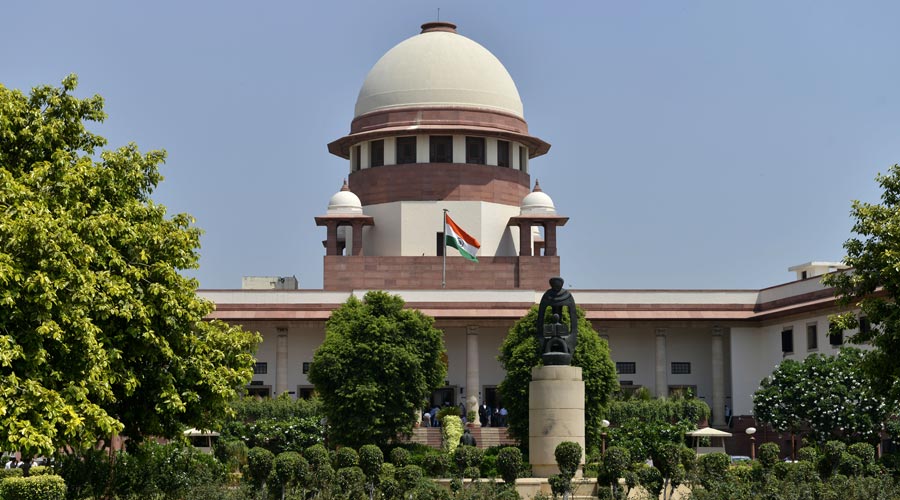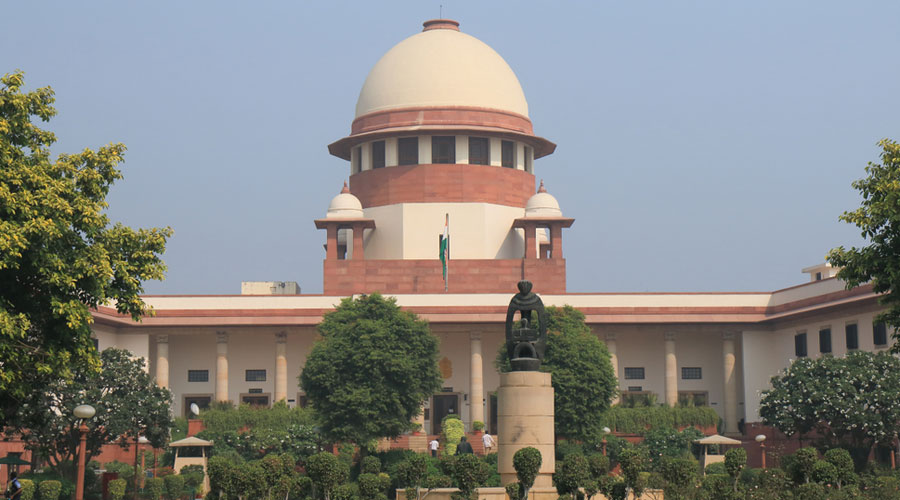The Supreme Court Friday sought a response from the Centre on a plea seeking a direction to the Centre to examine various international laws and come out with "effective and stringent" measures to control hate speech and rumour-mongering in the country.
A bench of Justices A M Khanwilkar and Abhay S Oka asked Solicitor General Tushar Mehta to examine the issue and ask concerned authorities to file an appropriate response.
Senior advocate Vikas Singh, appearing for the petitioner, submitted that the apex court had noted in one of the cases that the Law Commission considered hate speech as a ground for disqualifying people from the contesting elections. The Solicitor General said that a copy of the petition may be shared with him and that he would look into it.
The PIL has also sought a direction to the Centre to take legislative steps to implement recommendations of the Law Commission to deal with the menace of hate speech and rumour-mongering. The plea, filed by lawyer and BJP leader Ashwini Upadhyay in his personal capacity through advocate Ashwani Dubey, has made the ministries of home affairs, law and justice, and the Law Commission of India as parties.
"The petitioner is filing this writ petition as a PIL... seeking writ/order/direction to the Centre to examine the international laws relating to 'hate speech' and 'rumour-mongering' and take apposite effective stringent steps to control 'hate speech' and 'rumour-mongering' in order to secure rule of law, freedom of speech and expression and Right to Life, Liberty and Dignity of citizens," the plea said. It further sought a direction that the courts, while awarding punishment for the offences against "public tranquillity, offences relating to elections, etc", shall pronounce sentences running consecutively and not concurrently.
It urged that the government be asked to take appropriate steps to implement the recommendations of Law Commission Report-267 on hate speech. "The injury to the citizens is extremely large because 'hate speech and rumour-mongering' has the potential of provoking individuals or society to commit acts of terrorism, genocides, ethnic cleansing, etc. Hate speech is considered outside the realm of protective discourse.
"Indisputably, offensive speech and rumour-mongering have devastating effects on people's lives and risks their health and safety. Hate speech is harmful and divisive for communities and hampers social progress. If left unchecked, hate speech can severely affect not only the rule of law but also the right to life, liberty, and dignity of the citizens," it said.
The plea referred to incidents and termed them as "classic examples" of hate speech and rumour-mongering. In 2012, around 50,000 citizens from northeastern states moved from their residences across India and rushed to their native places after the "circulation of false images of violent incidents that took place not in India but Myanmar several years ago", it said.
Referring to existing penal provisions on hate speech in the IPC, the plea said that this is an incitement to hatred primarily against a group of persons defined in terms of race-ethnicity gender sexual orientation religious belief and it poses complex challenges to freedom of speech-expression.
"A difference of approach is discernible between the US and other democracies. In the US, it is given constitutional protection; whereas under international human rights covenants and in other western democracies, such as Canada, Germany, and the UK, it is regulated and subject to sanctions. In view of this, the petitioner is of the opinion that new provisions in IPC are required to be incorporated to address the issues elaborately...," it said.











